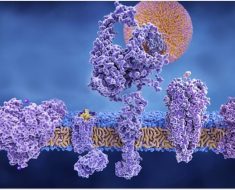Warfarin is one of the most widely used drugs in the world, for a variety of indications involving the prevention and treatment of thromboembolic phenomena. Its narrow threshold of toxicity, its dose-response ratio and the many factors that determine how well it works means that even after 60 years of using this drug, it is still being studied to establish the safest dosage range.
However, a primary consideration in the use of this drug is whether there are any contraindications to its use. These may be absolute, forbidding its use under any circumstances whatsoever, or relative, in which case the physician needs to balance the risks of bleeding complications against the risks of thromboembolism posed by the disease condition requiring warfarin therapy.
Absolute contraindications
Absolute contraindications to warfarin include:
- large esophageal varices
- within 72 hours of major surgery
- a platelet count less than 50 x 109/cu.mm which constitutes significant thrombocytopenia
- hypersensitivity to the drug, such as skin ischemic necrosis or priapism
- clinically significant bleeding condition – reassess risks after three months
- pregnancy and within 48 hours of delivery because of its known teratogenicity, as well as its capacity to induce spontaneous abortion and fetal/perinatal bleeding
- coagulation defects at baseline such that the INR is over 1.5
- decompensated liver disease
Relative contraindications
Relative contraindications require a careful balancing of the risks of warfarin against the risks of thromboembolism, before making a decision as to administration of the drug. They include:
- previous history of intracranial hemorrhage
- recent history of a major extracranial bleed without known cause
- history of peptic ulceration within the past three months – wait until treatment of peptic ulcer is completed, and continue treatment along with warfarin
- recent history of repeated falling episodes with a patient at higher risk for bleeds
- likelihood of poor patient compliance due to dementia or cognitive impairment, when there is no caretaker available
- alcoholism, especially binge drinking
- hypertension which is poorly controlled, or not under treatment
References
- https://www.health.qld.gov.au/publications/clinical-practice/guidelines-procedures/medicines/warfarin-guidelines.pdf
Further Reading
- All Warfarin Content
- What is Warfarin?
- Warfarin Pharmacology
- Warfarin Uses
Last Updated: Aug 23, 2018

Written by
Dr. Liji Thomas
Dr. Liji Thomas is an OB-GYN, who graduated from the Government Medical College, University of Calicut, Kerala, in 2001. Liji practiced as a full-time consultant in obstetrics/gynecology in a private hospital for a few years following her graduation. She has counseled hundreds of patients facing issues from pregnancy-related problems and infertility, and has been in charge of over 2,000 deliveries, striving always to achieve a normal delivery rather than operative.
Source: Read Full Article





